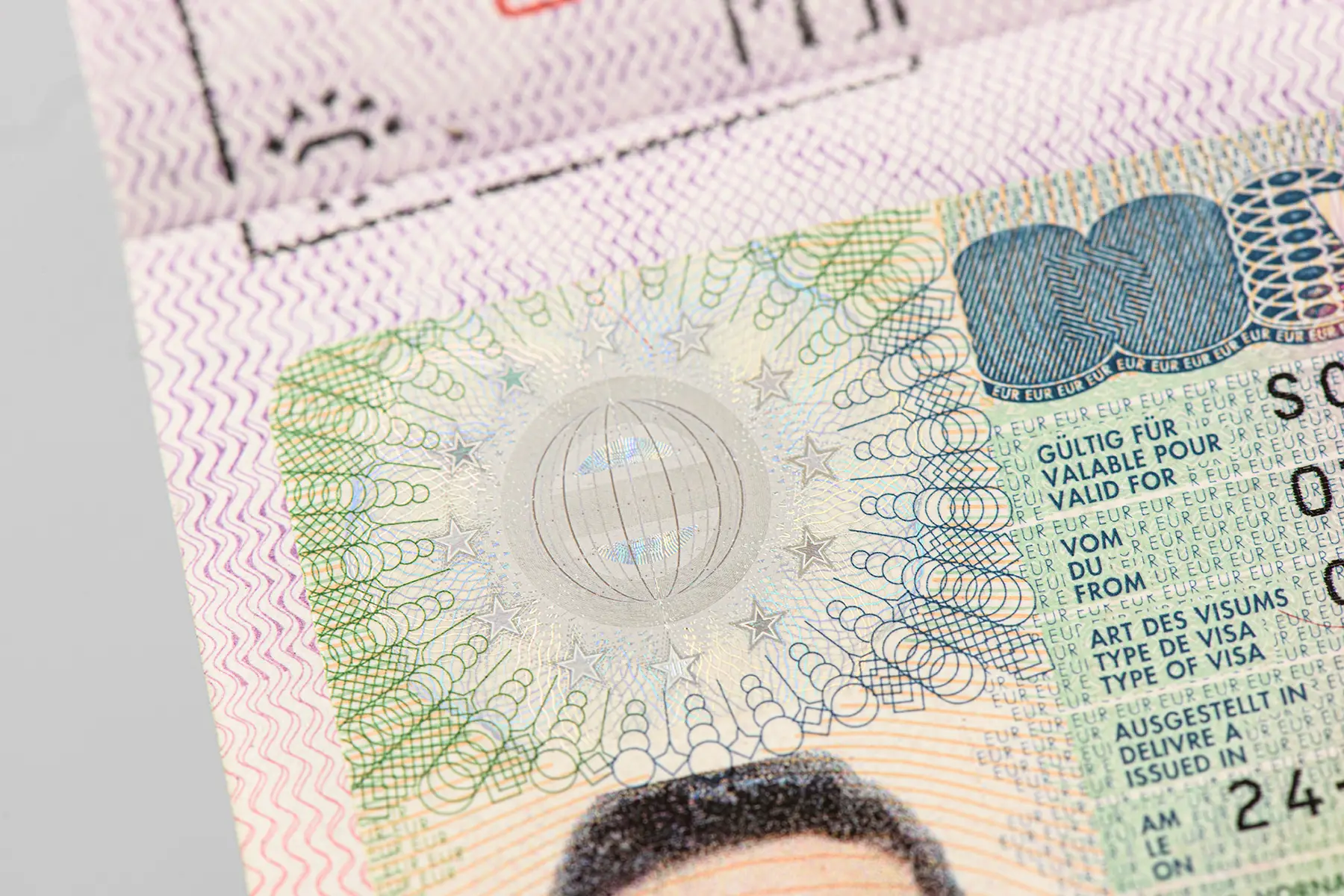After a busy work life, many pensioners look forward to a well-deserved retirement, but some worry about money. Understanding and accessing the German state pension system, especially as an expat, could relieve some of these financial woes.
Traditionally, retirees in Germany received a generous statutory pension. However, an aging population and a system where the workforce pays for the retired often force people to take a different approach to their retirement beyond the German state pension.
Learn more about the system, your rights as an expat, and how you can claim a pension in Germany with the following sections:
- The German pension system
- Pensions advice and support
- Who is eligible for a German pension?
- How much is the state pension?
- German pensions for expats
- Pension rates and contributions
- Pensions for freelancers
- Supplementary pensions in Germany
- Non-contributory pensions
- Other pensions in Germany
- Applying for your German pension
- Useful resources
Pensionfriend
Thinking of retiring in Germany? Pensionfriend is a financial advisor operating in Germany. Their team of experts offers advice and guidance for expats trying to plan their finances for retirement. Choose the best pension options for you and get more out of your retirement pot with the professionals at Pensionfriend.
The German pension system
Both Germans and internationals who have worked for at least five years can claim a German state pension (rentenalter) or old-age provision (Altersvorsorge). This also applies when you did not receive a salary because you were raising a child, provided nursing care, undertook vocational training, or received social benefits.

Similarly to many other countries, Germany operates a three-pillar pension system. These pillars include public pensions, collective company pensions, and individual private pensions:
- Mandatory state pension (Gesetzliche Rentenversicherung – GRV) – all employers and employees contribute to the government-subsidized public state pension plan via the social security system. The money in this fund is redistributed to existing pensioners, rather than being saved or invested.
- Company or occupational pensions (betriebliche Altersvorsorge – bAV) – some employers have additional pension schemes that allow their employees to collectively save extra money for their retirement
- Private pensions – these individual pension plans are set up through banks and insurance providers to increase the total amount of pension you receive after you retire
When you collect a pension in Germany, you are also expected to pay for Pensioner Health Insurance (Krankenversicherung der Rentner – KVdR) and Long-term Care Insurance (Pflegeversicherung der Rentner – PVdR). This is to cover the potential costs of your healthcare.
All rules and regulations regarding German pensions can be found in the Social Code IV (Sozialgesetzbuch – SGB, book six). This book of law falls under the scope of the Federal Ministry of Labor and Social Affairs (Bundesministerium für Arbeit und Soziales).
The German Retirement Insurance Fund (Deutsche Rentenversicherung Bund – DRB) is the main state pension provider and encompasses all regional and local branches of the country’s pension system.
East and West Germany
With the fall of the Berlin Wall in 1989, East Germany (Deutsche Demokratische Republik – DDR) and West Germany (Bundesrepublik Deutschland – BRD) became the united Federal Republic of Germany (Bundesrepublik Deutschland), (i.e., the Germany we know and love today).
The reunification came with many sociopolitical issues, including the pension scheme. Wages in the DDR were lower, and as such, the pensions of former-DDR retirees were also 40% lower than that of their former-BRD peers.

Since then, the country has gone through a dynamic catch-up. Pension benefits were gradually increased and are currently at 97% similarity. The pensions of East Germany (Neue Bundesländer) and West Germany (Alte Bundesländer) will be completely aligned in 2025.
Pensions advice and support
It is always recommended to consult a reputable financial advisor to make sure that you receive what you are owed. The German pension system can be tricky, especially if you plan for a portable retirement after working in multiple countries.
There are several companies that can help you plan your retirement, including:
Who is eligible for a German pension?
The German state pension scheme is very accessible. Anyone who has worked for a German business for at least five years is eligible to receive a pension. If you have worked less than five years, you can get your social security contributions refunded.
If you haven’t made any contributions to the state pension fund, you might still be eligible for a German state pension. The law lists a number of notable inclusions, such as:
- People living with a disability can receive a pension if they’ve worked in a disability placement for at least a year
- Members of spiritual societies (e.g., deaconesses)
- Self-employed freelancers (including artists, midwives, and coastal fishermen)
- Parents raising a child
- Some volunteering caregivers
Expats legally working in Germany and contributing to social security are also eligible for German pension benefits. The prerequisite of this is that they need to have worked there for at least five years. If you cannot meet this requirement, but you have accumulated a pension in another EU country, you can apply for a pension with the authorities of the last country you worked in.
Germany also has bilateral agreements with certain non-EU countries, making it possible to claim state pension payments if you worked in a different country. Full details of individual agreements are available on the DRB website.
Pension age in Germany
The country is currently in the process of raising the official pension age from 65 to 67 years for people born after 1967. You can use this retirement age calculator to see when you can stop working.

It’s possible to claim early retirement at 63 if you contributed for at least 35 years. However, the number of months you would have had to work until the actual age of 67 is deducted from your pension entitlement. This is called the Zugangsfaktor.
Each missing month results in a 0.3% reduction, which translates to a 3.6% reduction per year. So if you should’ve retired at 67 but you decide to retire at the age of 63, your pension entitlement will be reduced by 14.4%. This discrepancy does not right itself when you reach your actual retirement age.
Similarly, you can also push your retirement to an older age. This age does not have a limit. Each extra month will give you a 0.5% increase, which translates to 6% more pension benefits per year. That means that if you should’ve retired at 67, but you decide to retire at the age of 70, your pension entitlement will increase by 18%.
Early retirement options
The SGB also mentions a couple of exceptions to the above rules. These include:
- You can stop working at 65 without having any pension deducted If you’ve worked for at least 45 years
- If you live with a severe disability and have worked for at least 35 years, you can retire at 65 and take early retirement at 62
- You can retire at 62 if you’ve worked as a miner for at least 25 years. You’ll also be eligible for a miner’s pension if you are 50 years old and no longer receive an economically equivalent income.
How much is the state pension?
The pension you receive is calculated on the basis of the average German salary and your accumulated pension points (Rentenpunkte or Entgeltpunkte).
The average income is set annually by the federal state and takes into account the difference between East and West Germany. In 2022, the provisional average income was €37,333 in the east and €38,901 in the west.
Each year of your professional life that you have earned an average income will accrue one pension point (PP). If you are a Hamburger earning below the average in 2022, for example, €25,000, you will earn 0.643 pension points (€25,000 divided by €38,901).
If you are going through a divorce, the pension points you both have accumulated during the marriage will be added and divided equally between the two spouses.

From the age of 27 to 57, you will receive an update of your pension points annually. After you have reached 57, you will be updated every three years.
After you have traced your number of points, you’ll have to check their worth (PW). This is adjusted annually on 1 July, again making a distinction between east and west. In 2022, the points were valued at €35.52 in East Germany and €36.02 in West Germany.
Lastly, you have to calculate your Zugangsfaktor (ZF), (i.e. at what age you want to retire). If you retire at the age of 66, you have a Zugangsfaktor of 0.964. And if you retire at the age of 70, your factor is 1.18.
Then, the calculation is as follows: PP x PW x ZF = monthly retirement payment.
For example, if you are a 70-year-old from Munich (München) with 45 pension points, your 2022 gross pension is €36.02 x 45 x 1.18 = €1,912.66 per month.
German pensions for expats
As said before, expats who have worked and contributed to social security for five years or more can claim a German state pension. If you don’t meet the five-year requirement but have accumulated pension in the EU or elsewhere, you might qualify for pension benefits as well.
ExpatEase
ExpatEase provides free individual consultations on your pension situation and other financial topics in Germany. With over 40 years of experience and services in 15+ languages, they can help you secure all available government bonuses and tax benefits, offering trusted guidance tailored to expats.
UK citizens who want to retire in Germany can make use of a Qualifying Recognized Overseas Pension Scheme (QROPS). These are essentially offshore pension plans that allow you to transfer your UK pension schemes and accrued payments abroad. However, you must first get approval from HM Revenue and Customs to qualify for this.
Pension rates and contributions
Your annual salary determines the amount you contribute towards your pension (via social security contributions). Your employer automatically deducts this from your salary and contributes an equal amount as well.

In 2022, the maximum contribution was 18.6% of gross salary (9.3% by the employee and 9.3% by the employer). It remains unchanged in 2023. The current contribution assessment ceiling is €7,050 per month in west Germany and €6,750 per month in east Germany.
Because the pension scheme is essentially a pay-as-you-go plan, there are no minimum or maximum amounts you contribute. The number of years worked, your age, and your average income all determine the overall pension rate.
The net replacement rate of the German pension (the percentage of your average salary your pension equates to) is 53%. This is below the 2022 OECD average of 62% for men and 61% for women, and the EU average of 68% for men and 67% for women.
In 2018, the German government announced plans to reduce this to 48% by 2025.
Refunds and insurance
If you haven’t worked for at least five years in Germany and you’re not planning to either, you can get a refund of your social security contributions. However, a refund does mean you cannot claim any German state pension in the future.
Dealing with the bureaucracy of a pension refund can be tricky, but there are services that can help you. For example, German Pension Refund handles the entire process and provides English-language assistance for expats who have left Germany.
Retirees in Germany are also obliged to get Pensioner Health Insurance and Long-term Care Insurance to cover any potential costs of their elderly nursing care needs.
Pensions for freelancers
Self-employed people (Selbstständiger) are not obligated to contribute to the state pension system (apart from certain categories such as teachers and midwives). Instead, you can choose to opt-out and join a private scheme. Those who do pay into the German state pension scheme can do so at a lower rate.

Another option is to sign up for the Rürup pension (Rürup-Rente). This private pension plan is subsidized by the German government and allows you to make large sums of tax-deductible contributions. When you’ve turned 63, the money saved can be paid out in a lump sum or as a regular monthly payment throughout your retirement.
How much you can contribute annually to the Rürup pension scheme depends on the contribution assessment limit (Beitragsbemessungsgrenze) and the contribution rate (Beitragssatz).
In 2022, the assessment limit was €103,800 and the contribution rate was 24.7%, meaning you could contribute a maximum of €25,639 per person (and €51,278 if you are a couple).
You can use a Rürup-Rente calculator, to calculate how much pension you’ll get.
Advantages and disadvantages
A major benefit of the Rürup pension plan is that you can build up a sizeable retirement fund in a short amount of time, due to the large contributions you’re allowed to make. Plus, the contributions are tax-deductible, making it very attractive for small business owners and high-earners. However, before you decide, you should always consult a financial advisor.
However, the taxes you save now do have to be paid when you retire. In essence, you will have shifted your tax burden into the future.
Once you opt in, you cannot opt out. And the money you’ve saved cannot be transferred to someone else or be inherited by your dependents if you did not add additional security measures to your contract.
Another disadvantage is that the Rürup pension scheme is not regulated. That means that if you want to change providers, they are not obliged to transfer your savings to a new plan. You then only have the option of making your existing contract non-contributory and getting a new plan.
Supplementary pensions in Germany
Basic pension for low-income households
Long-term low-income employees are entitled to an additional basic pension (Grundrente) when they retire. The payment is determined on an individual basis but ensures retirees receive a pension above basic security.

In order to qualify for this supplementary pension, you need to have worked in Germany for at least 33 years. This includes periods when you raised a child, provided nursing care, or received social security benefits due to an illness. Your average income during that time cannot exceed 80% of the German average earnings.
You don’t have to apply for a basic pension; instead, you will receive the extra income automatically with your pension payouts.
Riester pension (Riester-Rente)
The Riester pension is a government-subsidized private plan that most German residents are allowed to participate in. Excluded from taking part in the scheme are:
- Non-compulsorily insured freelancers and self-employed people
- Low-income employees who are exempt from paying mandatory pension contributions
- People with another private pension insurance
- People with a company pension
- Retirees with a full pension
- People on social benefits
- Students
This plan asks you to pay a minimum of 4% of your gross annual income. The maximum payment is up to €2,100 per year (or €2,160 for married couples). In return, you’ll get a supplementary pension, plus benefits, such as:
- One-off €200 signing-up bonus if you are younger than 25
- Basic allowance of €175
- Child allowance of €185 per child born before 2008
- Child allowance of €300 per child born after 2008
The Riester pension plan allows you to invest in multiple assets (e.g., a home) and is tax deductible). It is particularly beneficial for families with children and employees with lower incomes.
You can contact any bank, savings bank, insurance company, investment company, or building society for more information and advice on the Riester pension.
Company pensions
Some 169 employers in Germany offer a company or occupational pension. In 2018, the European Insurance and Occupational Pensions Authority (EIOPA) reported that around 53.8% of Germany’s working population participates in occupational pensions. This number is expected to grow.

There are various different employer pension plans, including:
| Direct Pension Promise | External Pension Plans |
| The employer agrees to pay the employee an agreed amount upon retirement | The employer takes out a plan with an external provider, such as: life insurance, an independent employee pension provider (Pensionkasse), an independent pension fund, or a support fund (Unterstützungskasse) |
Each employer scheme has its own contributions, conditions, tax deductions, and pension benefits. Some might offer more advantageous benefits than the state pension, for example, early pay pension payout.
Sustainable private pensions
German residents can also opt to take out a private pension plan with an insurance provider. There is a range of private fund-based plans and insurers available. Most of these are flexible and can be used in conjunction with subsidized schemes, such as the Rürup pension.
In recent years, green pension schemes (grüne Fonds) with sustainable provisions (Nachhaltige Altersvorsorge) have become more popular. These invest your money while excluding companies that contribute to ethical and ecological issues, such as corruption, climate, arms deals, child labor, human rights violations, and coal and nuclear power.
Although there are still very few sustainable pension insurers, your options include:
If living sustainably is your priority, you can visit Fair Finance Guide Deutschland to see how sustainable the pension scheme from your bank is.
Non-contributory pensions
Those unable to work due to severe illness or disability can claim an old-age pension for Severely Disabled Persons (Altersrente für schwerbehinderte Menschen) at the age of 62.

In order to qualify you must have lived with the disability or illness for at least 35 years of your working life. Moreover, you are required to have a disability grade (Grad der Behinderung – GdB) of at least 50. You can contact your GP or family doctor to determine your disability score.
Once you’ve received a grade, you can apply for your disability pension. You can do so three months before your retirement.
Other pensions in Germany
The other types of pension schemes besides the German retirement pension include:
- Invalidity pension (Erwerbsminderungsrenten) — a benefit for those with a reduced earning capacity due to prolonged illness or injury. You need to meet the five-year minimum contribution period, including three of the five years preceding the illness or injury.
- Bereavement pension (Renten für Hinterbliebene) — including widow(er)’s pension and orphan’s pension
- Miner’s pension — a special old-age pension for miners, railway, and maritime workers
These pensions come with specific requirements as well. For example, a widow(er) cannot be remarried or earn more than a set amount.
Applying for your German pension
In Germany, you don’t automatically receive a pension. Instead, you can file an online or written application with the DRV. Evidence you’ll need to provide include:
- Valid ID
- Insurance number
- Tax identification number
- Details of your health insurance (including nursing care provision)
- Bank account number (IBAN)
Old-age, disability, and child-raising pensions have an application deadline of three months before retirement. A delayed application can result in a delayed payout.
The deadline for a survivor’s pension is twelve calendar months from the date of death. If the application was submitted later, the pension payouts will only start from the month in which the application was made.
Widow(er)s of other retirees can also request an advance on their pension. You can visit the DRV website for more information.
Useful resources
- Ministry of Labor and Social Affairs (Bundesmisterium für Gesundheit) – official government website overseeing the German pension system
- Deutsche Rentenversicherung (DRV) – website of the main state pension provider that has all information regarding pensions and rehabilitation
- Miners Rail Maritime Pension Fund (Knappschaft-Bahn-See – KBS) – German pension provider for miners, rail workers, and maritime workers





